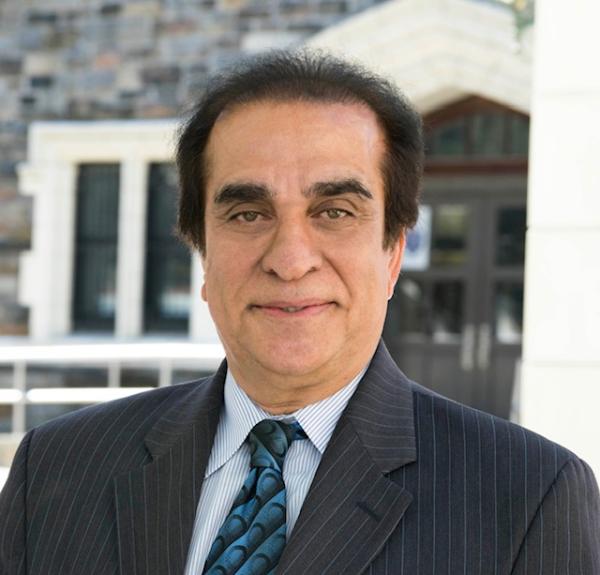
Reza Khanbilvardi of the Grove School of Engineering leads the CCNY team in the Caribbean Climate Adaptation Network.
With climate change an increasingly pressing global issue, The City College of New York’s involvement in finding solutions continues to expand. CCNY is joining a group of other prominent institutions in a new CAP (Climate Adaptation Partnerships) program supported by a $6,037,4681 grant from the National Oceanic and Atmospheric Administration Climate Program Office (NOAA- CPO). Caribbean Climate Adaptation Network (CCAN) is part of a broader network of 12 teams funded by NOAA's CAP ( formerly known as the Regional Integrated Sciences and Assessments (RISA) program) across the U.S.
Titled: “(CCAN): Building equitable adaptive capacities of the US Virgin Islands and Puerto Rico,” the award is for a five-year CAP team in the U.S. Caribbean region, with the University of Puerto Rico (headed by Pablo Mendez-Lazaro, CCAN- PI) as the lead institution. In addition to CCNY, other partnering institutions include:
• The University of the Virgin Islands;
• Worcester Polytechnic Institute;
• University of South Florida;
• University of Puerto Rico at Mayaguez;
• The University of Texas, Austin;
• The University at Albany/SUNY;
• New York University;
• U.S. Forest Service (USDA); and
• Caribbean Coastal Ocean Observing System.
The team’s goal is to advance equitable adaptation in Puerto Rico and the U.S. Virgin Islands through sustained regional research and community engagement. They will focus on multiple climate and society issues and develop a set of interconnected projects that build the capacity of regional partners to act on those issues.
Reza Khanbilvardi, NOAA Chair Professor of Civil Engineering in the Grove School of Engineering and Executive Director of the CUNY CREST (Earth System Sciences and Remote Sensing) Institute, is the CCNY lead investigator on the team.
The team, including CCNY graduate students, will focus on key components of the project that include development and implementation of management strategies related to extreme hydrological events (i.e. precipitation and inland flooding). This will include assisting in the development of strategies to be adapted by local communities in response to climate-related impacts and disturbances for both Puerto Rico (PR) and the U.S. Virgin Islands (USVI).
Khanbilvardi, who has more than 20 years experience in conducting research in hydrological extremes, inland flood modeling, and its impact on critical infrastructures in Puerto Rico, said: “While most of our work in the past focused more on western Puerto Rico, the challenge is now much bigger, as the focus will be on the entire Island of Puerto Rico and the U.S. Virgin Islands.”
During the next five years, CCAN Scientists will utilize NOAA and other available data products to increase local climate adaptive capacity and resilience in small and underserved and underrepresented communities. “Through this CAP, the team will also support education and professional development in NOAA mission areas,” said Khanbilvardi, founding director of the NOAA Cooperative Science Center at CUNY from 2001 to 2021.
About the City College of New York
Since 1847, The City College of New York has provided a high-quality and affordable education to generations of New Yorkers in a wide variety of disciplines. CCNY embraces its position at the forefront of social change. It is ranked #1 by the Harvard-based Opportunity Insights out of 369 selective public colleges in the United States on the overall mobility index. This measure reflects both access and outcomes, representing the likelihood that a student at CCNY can move up two or more income quintiles. Education research organization Degree Choices ranks CCNY #1 nationally among universities for economic return on investment. In addition, the Center for World University Rankings places CCNY in the top 1.8% of universities worldwide in terms of academic excellence. Labor analytics firm Emsi puts at $1.9 billion CCNY’s annual economic impact on the regional economy (5 boroughs and 5 adjacent counties) and quantifies the “for dollar” return on investment to students, taxpayers and society. At City College, more than 15,000 students pursue undergraduate and graduate degrees in eight schools and divisions, driven by significant funded research, creativity and scholarship. This year, CCNY launched its most expansive fundraising campaign, ever. The campaign, titled “Doing Remarkable Things Together” seeks to bring the College’s Foundation to more than $1 billion in total assets in support of the College mission. CCNY is as diverse, dynamic and visionary as New York City itself. View CCNY Media Kit.